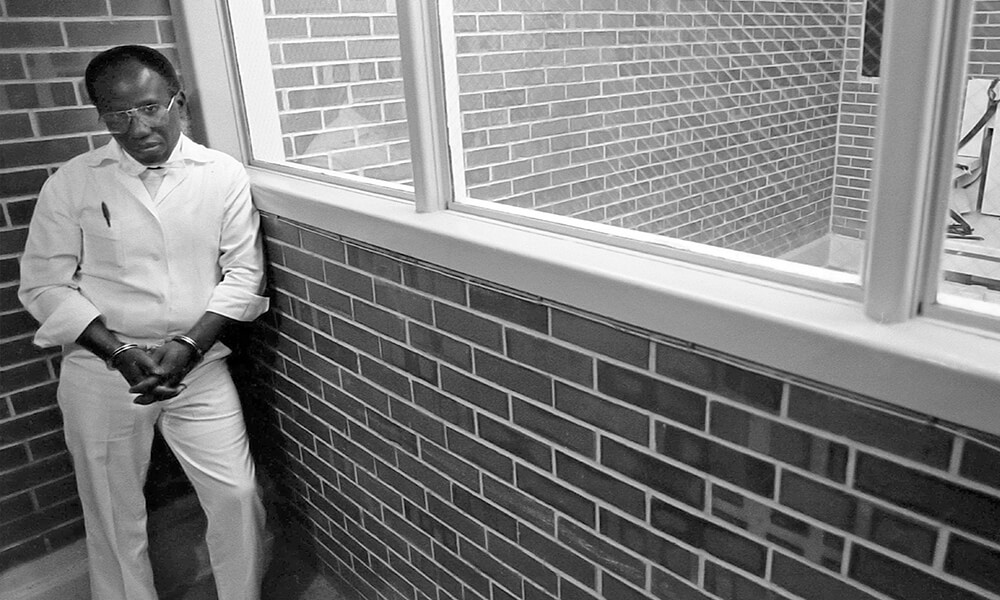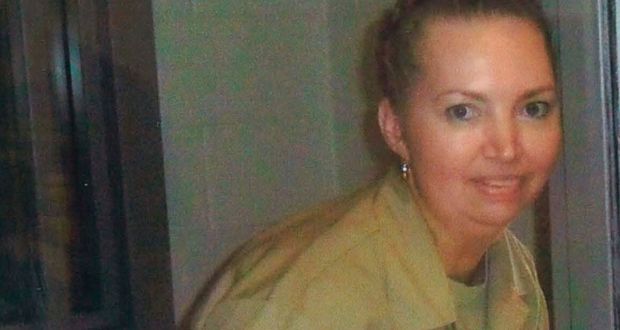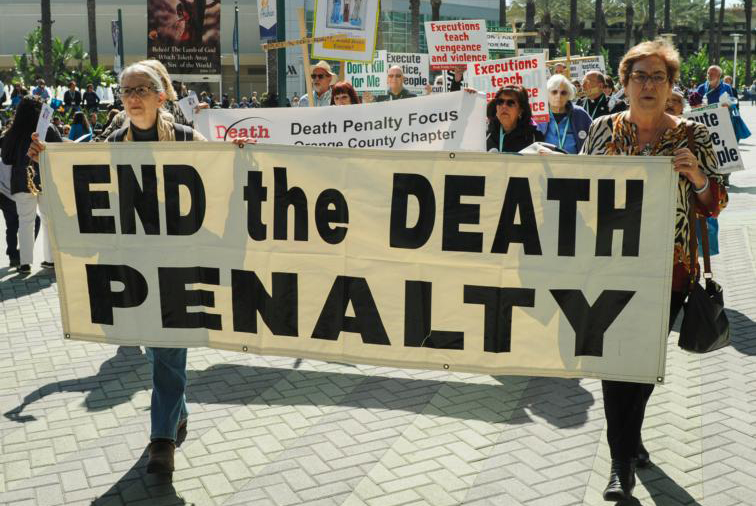Update Jan. 13, 2021: Lisa Montgomery, age 52, has been executed, the only woman on Federal death row and the first woman to be executed in the United States in almost 70 years.
Herbert Richardson’s story moved the world in the feature film Just Mercy (2019), as a former veteran whose mental illnesses were disregarded and whose life was unjustly taken by the State of Alabama in 1989. Now, in Trump’s final days of power, other five black men and one woman are to meet the same fate of federal execution as Richardson. Brandon Bernard and Alfred Bourgeois have had their executions on the 10th and 11th of December, respectively. Human rights activists are now fighting to save the lives of Pervis Payne, Cory Johnson, Dustin John Higgs, and Lisa Montgomery.
There are unsettling facts that characterize the cases of these six individuals, such as mental illness, childhood abuse, brain injuries, and their ethnicities, which some argue are the reasons why Trump’s administration insists on this capital punishment.
The rush to complete these executions is rooted in an effort to deny President-elect Joe Biden’s any role in the executions, as he has pledged to abolish the federal death penalty. Pervis Payne and Cory Johnson’s executions have both been reprieved to April 9 – after Biden’s inauguration – and their lives are likely to be spared.

The same cannot be said about Lisa Montgomery – the first woman to be sentenced by the federal government in almost 70 years – and Dustin Higgs, with execution dates set for the 12th and 15th of January respectively.
The crime Lisa Montgomery is being charged for is horrifying – choking a pregnant woman with a rope and attempting to pass the victim’s infant as her own. In addition to its macabre nature, according to experts, these actions show clear patterns of a victim of psychological trauma. As a child, not only was Lisa constantly raped and beaten by her stepfather (lesions that caused a traumatic brain injury, MRI brain scans would later show) but she was also sexually harassed in exchange for money, by men invited by her stepfather, in “ordeals that would last for hours and end with the men urinating on her like she was trash”.
Robert Dunham, executive director of the Death Penalty Information Center explains this pattern: “[The people who are being executed] are disproportionately severely mentally ill, brain-damaged, intellectually disabled, chronically abused or a combination of those.”
At this stage, Lisa’s only hope is for the Trump administration, in its role as the government authority that has so many times failed to protect her as she was raped through her childhood, to show her compassion. Undoubtedly, her actions were inhumane and she must face the consequences of such, as she has through the last 17 years she remained in jail, but to take her life for an action committed through direct consequence of trauma and abuse is, her defenders argue, a heartless act.

A troubling unfairness also characterizes Dustin John Higgs’ sentencing: Not only is he scheduled to die a single day before Biden’s administration takes over, but he also never committed a crime himself. In January 1996, Willis Haynes – a white man – shot and killed 3 women in Maryland. The federal jury who sentenced Haynes to life in prison also sentenced Higgs to a death sentence, claiming that Higgs was the one who ‘ordered’ Haynes to kill the three women. Haynes wrote himself that “the prosecution’s theory of our case was bullshit. Dustin didn’t threaten me. I was not scared of him. Dustin didn’t make me do anything that night or ever.”
Many Maryland legislators, including House Speaker Adrienne A. Jones, have written appeals seeking to change Higgs’ death sentence to life in prison. Da’Quan Darby, Higgs’ 24-year-old son, finds the fact that his father’s fate relies on a single day difference to be deeply disturbing: “If we could just get one more day,” Darby said, “This is my father, and I’m going to lose him.”
Some also argue that the peculiar fact that Higgs’ execution date aligns with Martin Luther King Jr’s birthday is not a coincidence, but rather a “ final statement of disregard for Black life from an administration defined by its racism”.
Different from Montgomery, Higgs’ fate however does not depend only on the (possible) clemency of Trump’s administration. Higgs tested positive for COVID-19 last month, a diagnosis which could delay his execution date, and possibly have it changed to a death sentence under Biden’s administration. COVID, his lawyers argue, has caused lung damage that puts him at greater risk for painful pulmonary edema, the flow of fluid into the lungs, when he receives the lethal injection, violating Higgs’ constitutional protection against cruel and unusual punishments.

Both the cases of Higgs and Montgomery show how ableism – social prejudice against people with disabilities – and racism are still very much present in America’s judicial system and, although their sentences were made years ago under distinct social context, Trump’s administration is disregarding a chance to right the system’s wrongs with this rush of federal executions of inmates who all have contradictory and troubling stories.
Moreover, the current uproar over the unprecedented January 6 attack on the Capitol by extremist right and white supremacist Trump supporters, encouraged by Trump himself, risks obfuscating this issue, pushing it out of public sight and further endangering Lisa Montgomery and Higgs.
Editor’s Note: The opinions expressed here by Impakter.com columnists are their own, not those of Impakter.com.
In the featured image: Demonstrators march to protest the death penalty during a rally organized by Catholics Against the Death Penalty-Southern California in Anaheim Feb. 25, 2017. Credits: CNS photo/Andrew Cullen.









